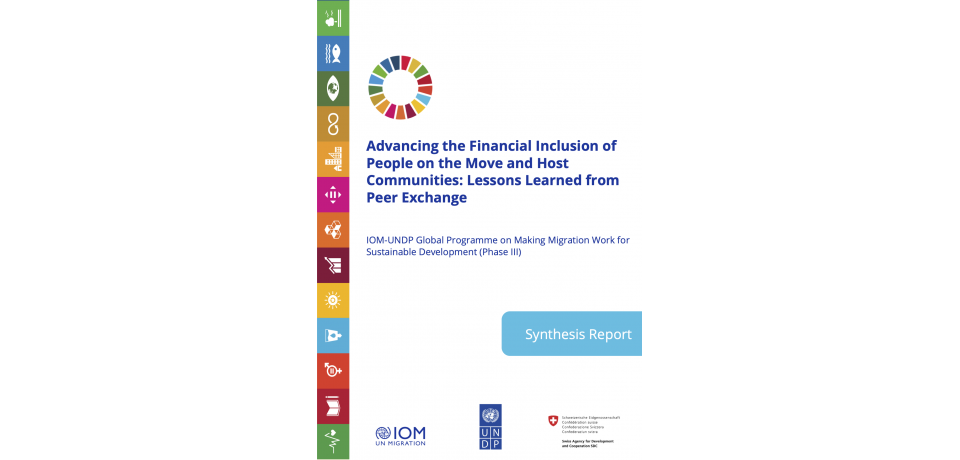Advancing the Financial Inclusion of People on the Move and Host Communities: Lessons Learnt from Peer Exchanges
Related Sustainable Development Goals and Global Compact for Migration Objectives
This report summarizes discussions from the peer exchange group (PEG) on advancing financial inclusion for migrants and displaced people that took place virtually on May 24th. The discussion brought together over 70 representatives from UN agencies, local and national governments, the private sector and civil society from 11 programmes. The event was co-led by the Ministry of Foreign Affairs and Human Mobility of Ecuador.
It was the second event in a series of private sector engagement-focused peer exchanges being held by UNDP this year within the framework of the Global Programme on “Making Migration Work for Sustainable Development” funded by the Swiss Agency for Development and Cooperation and implemented jointly by IOM and UNDP.
This report is structured in three main parts.
- A case study of the Ecuadorian government’s integration plan for Venezuelans and other migrants from around the region. The study offers insights into how the government’s regularization process eases barriers to financial inclusion, a useful tool for practitioners developing similar processes.
- A summary of the results from an interactive brainstorming session on best practices of supply-side interventions with financial institutions. These practices can be adapted to support people on the move across the globe.
- Presentations by financial inclusion experts from the private and non-profit sectors that explored the challenges and opportunities for facilitating financial inclusion. Strategies such as updating current regulations regarding financial products and services, improving financial education, and involving financial institutions can be applied across countries and strengthened through public-private coordination.
